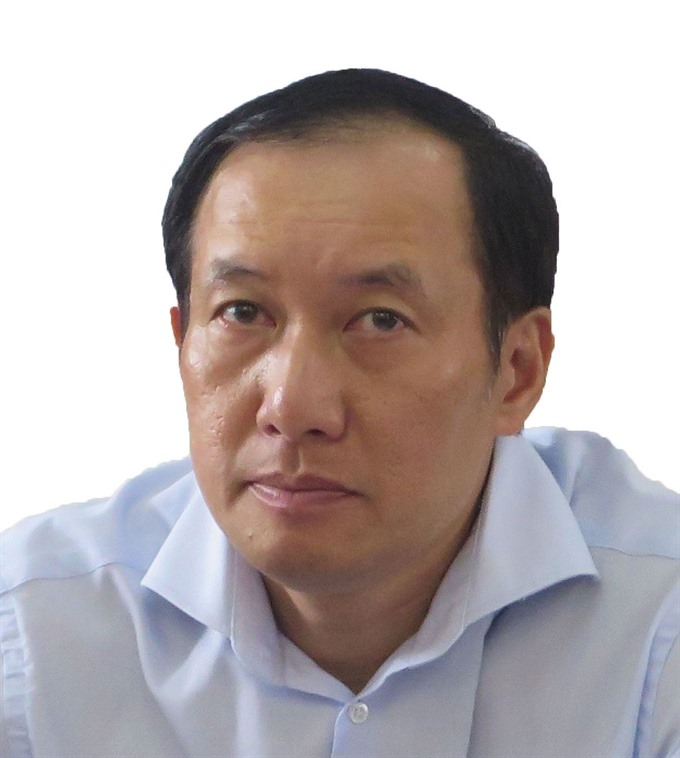 Economy
Economy

 |
| Fairness rules: Phạm Hồng Sơn, vice- chairman of the State Securities Commission of Viet Nam. |
As the Vietnamese Government’s plan to equitise State-owned enterprises (SoEs) unfolds favourably, the stock market is expected to offer new investment opportunities. Phạm Hồng Sơn, vice-chairman of the State Securities Commission of Vietnam (SSC), spoke about current market situation and the commission’s action plan on the side of the recent Nikkei Asian Review Forum in Hà Nội.
Stock indexes have soared since the beginning of the year. What does the Government and SSC have planned to speed up market growth and ensure investors’ confidence?
Looking back to 2006, there were two listed stock exchanges with 192 listed companies. Only one of them could manage a market capitalisation of more than US$1 billion. Now there are more than 700 listed enterprises, 23 of which have a market capitalisation of more than $1 billion, so I can safely say that we have come a long way.
In the near future, we will continue to closely follow the Prime Minister’s direction in divesting SoEs, creating a good supply of quality stocks and enhancing the national stock market.
The SSC plans to launch more products in coming months, including covered warrants and other derivative securities, and there should be an influx of SoEs’ listed stocks in the next two years.
The Ministry of Finance is also finishing an amendment to the current Securities Law. This is to further improve the legal framework for the general market, promote shares and bonds and regulate the newly opened derivative market.
In line with the 2015 Law on Enterprises, the amended Law on Securities will create favourable conditions for enterprises to raise capital through shares and bonds, improve the quality and efficiency of the securities market inspection and supervision process. This should guarantee sustainable and transparent market development.
We are also carrying out a plan to merge Hà Nội Stock Exchange and the HCM Stock Exchange to reduce costs for investors.
How has the process of SoEs equitisation affected the stock market?
I think we can agree that the stock market is becoming more and more attractive to investors. This is in part due to the Government’s specific policies and plans in accelerating the process of SoEs equitisation and divestment.
I consider it no accident that both domestic and foreign investors are showing a greater deal of interested in the Vietnamese stock market, regardless of the already solid national macroeconomic growth, as seen through controlled inflation, stable exchange rates and reasonable interest rates.
In the first nine months of 2017, 34 SOEs became equitised, with hundreds more to be listed in coming years. By the SSC’s estimation, thanks to these hugely valued companies, stock market capitaliation will be worth about 80 per cent of Việt Nam’s GDP by 2020. At present, this number is roughly 60 per cent.
In addition to private companies, the many equitised and listed SoEs have helped boost the recent growth of the securities market. It is evident that stock market liquidity is positive with a 50 per cent increase from VNĐ3 trillion ($133.5 million) worth of traded value per session in 2016 to VNĐ4.5 trillion ($200.2 million) so far this year.
There is a belief and a macro basis for the Vietnamese stock market’s bright future. After 17 years of development, it is now known as the fastest growing securities market in terms of scale and liquidity in ASEAN.
Despite any remaining difficult economic situations, there are optimistic points for us in the near future, thanks to the Government’s determination to remove obstacles, amend regulations and facilitate enterprises’ development.
Concerning larger SoE equitisation, what do you suppose is a challenge for companies? What do you think can be improved?
I would say that the Government’s ongoing plan for SoE equitisation is progressing as expected. The process of capital divesting is now relatively well regulated with the State imposing strict control over the evaluation process and public auction.
In the future, the Government will implement Decree 91 on capital withdrawal and equitisation, including share auctions and initial public offerings.
I think the main challenge is that companies will have to agree to information disclosure, improve management capacity and follow new regulations. Of course, each business has its own specific challenges related to their field of operation and industry.
We can see that investors, before making any investment decision, must carefully consider a market’s performance, then its liquidity, transparency and the market’s level of commitment to its own legal mechanism.
I can say the most basic requirements of the stock market are transparency and fairness, so SoEs looking to be listed on the exchange must opt for transparency and fair business operations, first and foremost. Those that have been listed need to comply with the market requirements even more so. — VNS




